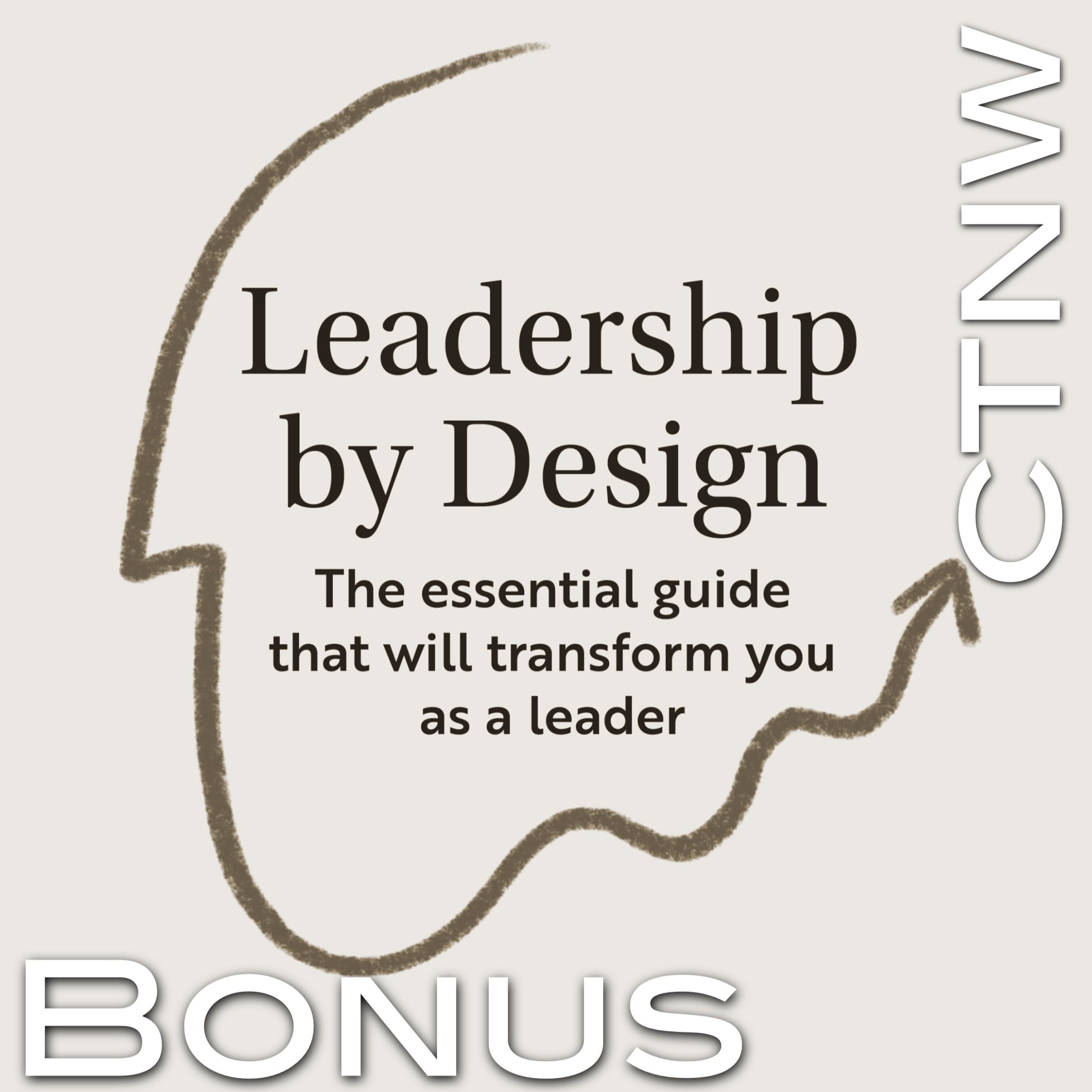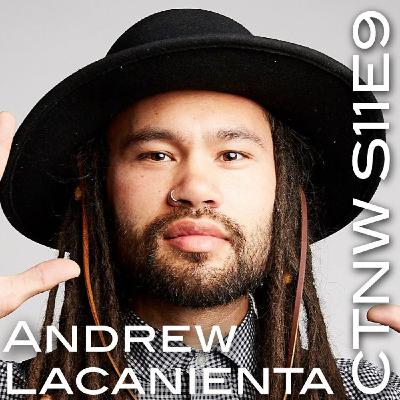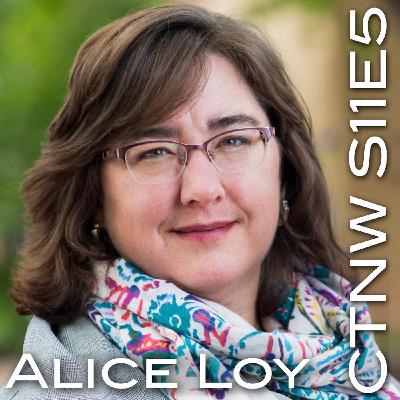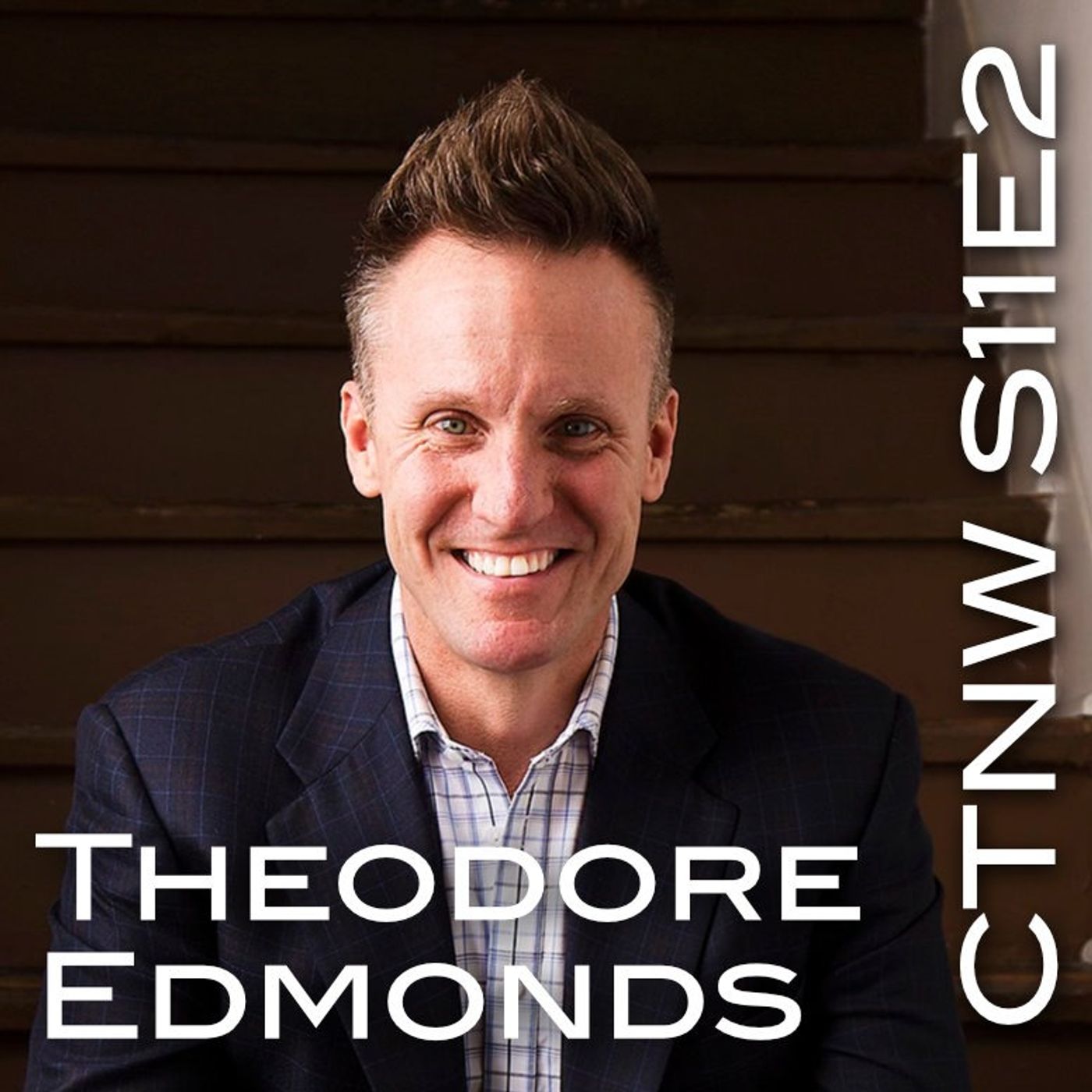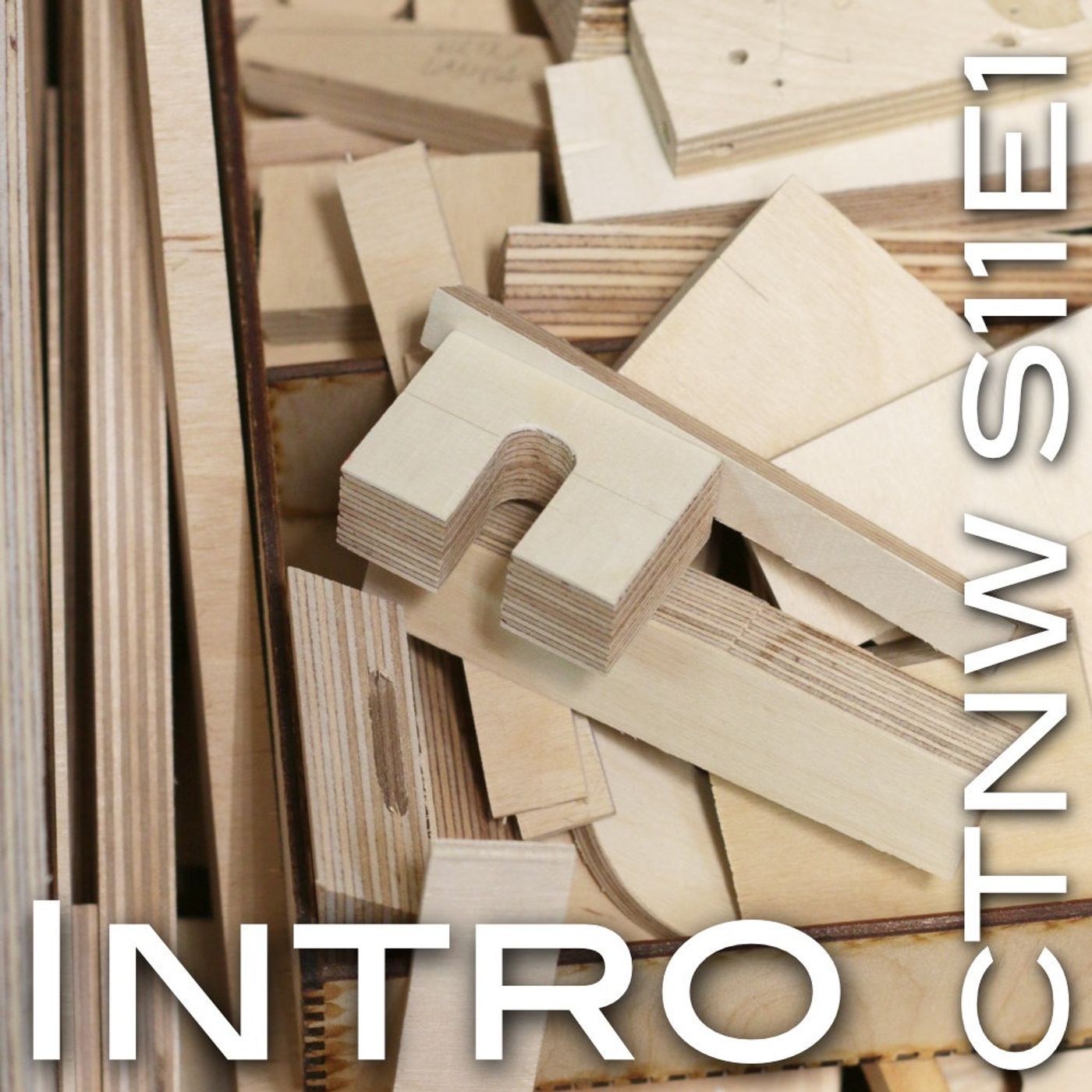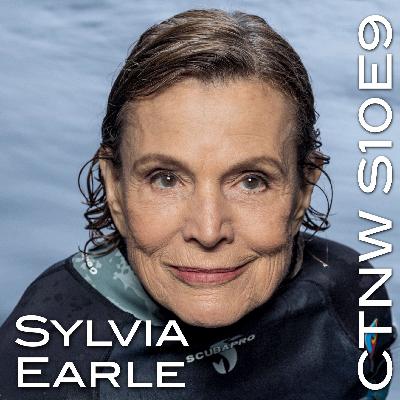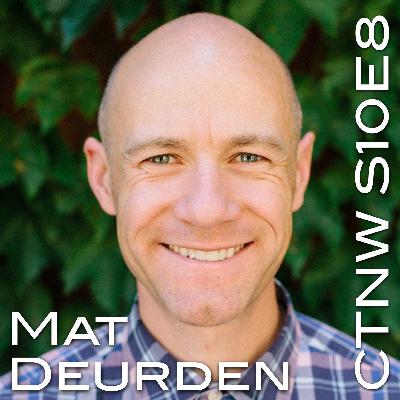Discover Catching the Next Wave
Catching the Next Wave

Catching the Next Wave
Author: Aga Szóstek, Łukasz Szóstek
Subscribed: 39Played: 407Subscribe
Share
Description
Aga and Łukasz Szóstek inspire leaders to reflect on the possibilities and challenges of 21st-century leadership through inspired conversations with amazing guests. They together discuss topics such as change, innovation, common sense, empowerment and more, each of them unique for one season of their podcast. Join them as they Catch The Next Wave.
118 Episodes
Reverse
Nobody is born a leader. Yet we seem to believe that there is a set of skills that will turn us into leadership perfection. Aga doesn't believe that one bit. This is why she wrote the book "Leadership by Design". It is a 12-week course in designing your personal leadership practice. In this bonus episode, łukasz asks Aga about the reasons for writing such a book in the first place and about the change a book like this can inflict on the life of a leader.LINKS"Leadership by Design" on Amazon"Leadership by Design" at BIS Publishers"The Artist Way" by Julia CameronThe book illustrator Weronika Marianna's websiteA conversation with Phillip Collins on CTNW
Season 11 of the Catching The Next Wave podcast was about doing. But, it turned out that doing is not just about putting something into the world, it is a much more nuanced concept to ponder including aspects like curiosity, open-mindedness, accountability, and much more. We started by distinguishing between thinking and doing only to arrive at a conclusion that one is impossible without the other. We hope you will enjoy that season much as we did.LINKS“Obliquity” by John Kay
So many of us are afraid to be different and stand out of the pack. Our guest, Andrew Lacanienta, a senior strategist at George P Johnson Experience Marketing, thrives when he can share his uniqueness with others as long as what he does is truthful to himself. Andrew holds a PhD in Experience Design so we just couldn’t avoid the topics of experience and transformational design, however, we tackle them from both the personal and the business context. We also talk about the importance of embodied experience that makes us connect between our minds and hearts.LINKS“Designing Experiences” by Robert Rossman and Mat Duerden“Deep Work” by Cal Newport“The Anatomy of Peace” by The Arbinger Institute
What do life-long learning and building communities have in common? David Nebinski, the host of the Portfolio Career podcast and a Community Operations Manager for the Chief of Staff Network Community says that communities are places for a social learning experience, which allows for creating a common language and stimulates accountability. We dive into the need for flexing your mind in order to deal with uncertainty and use generosity as a way to expand your worldview.LINKSDavid's Portfolio Career Podcast“Get together” by Bailey Richardson, Kevin Huyn, Kai Elmer Sotto“Atomic Habits” by James Clear“The Artist Way” by Julia Cameron“Flex: Reinventing Work for a Smarter, Happier Life” by Annie Auerbach“War of Art” by Steven Pressfield“Do The Work” by Steven Pressfield“Turning Pro” by Steven Pressfield“The Business of Belonging” by David Spinks“Your Music and People” by Derek Sivers
What can the mixture of curiosity and making things visual do to your collaborations? It is one of the many topics we discuss with our guest Anna van der Aa, a coach, researcher, visual facilitator, and songwriter. We discuss the notion of clean coaching using clean questions and we dive into evidence-based decision-making as a way to do things in an informed and wise way. And we try to figure out how people rock :)LINKSAnna’s websiteAnna’s song that surprised her after being produced Anna’s song “Roll the dice”The drawing course with Brandy AgerbeckJessica AbelMorgan Peng "Creativity Inc" by Ed Catmull“The Back of the Napkin” by Dan Roam“See What I Mean, How to use comics to communicate ideas” by Kevin Cheng “The Artist Way” by Julia Cameron“The Creative Priority: Putting Innovation To Work In Your Business” by Jerry Hirschberg
How to define inventors of our times? This is a question, we try to answer with our guest, Daniel Owsiański, a VP of Technology at volt.io. We talk about the creativity of teams versus individuals, productivity versus effectiveness, and leadership versus management. We discuss the need for self-organizing teams and embracing the process, which is the only thing under our control. LINKS“Thinking Fast and Slow” by Daniel Kahneman“Why We Sleep” by Matthew Walker
Creative industries offer the potential for going global with local flavor, unlike any other scalable businesses that are alike everywhere you go says Alice Loy, a co-founder of the world's first accelerator for creatives called Creative Startups. Alice argues that we need a new economy based on new models of investing and she says that creatives need to be a part of that conversation because they have a crucial role in combining community and culture. We also discuss the good questions to ask and the need for ambiguity as a way to stimulate entrepreneurship.LINKS“Getting Things Done” by David Allen
What is hype and how mischiefs and propagandists can help you build it? Or, in other words, how do you get people to hear and follow you? This is one of the many topics we discuss with our guest Michael F. Schein -- a writer and the author of the book “The Hype Handbook”. We also talk about thinning in bets, the future of social media, and the trap of following the rules others live by. LINKS“The Hype Handbook” by Michael F. Schein “The Medici Effect” by Frans Johansson“The Click Moment” by Frans Johansson
Every opportunity is a learning opportunity, says our guest Latifa Al-Khalifa – a Social Entrepreneur, STEAM education advocate, and a founding member of Clever Play, a purpose-driven startup with a mission to inspire, educate and empower 1 million children in MENA STEAM skills by 2030. In this insightful conversation we dive into the shape of the XXI century education (or rather learning). We discuss how it is no longer important what you know but what you do with what you know. And we talk that in order to do things you dream about you need to redefine yourself first.LINKSLatifa's start-up Clever PlayThe STEM podcast“Endurance” by Alfred Lansing
Culture can only be defined at an intersection of data argues our guest Theodore Edmonds – a creativity researcher, cultural futurist, artist, wellbeing entrepreneur, data analytics inventor, and a transdisciplinary academic. We talk about the third spaces, the different flavors of creativity, and Aristotelian notions of hedonism and eudaimonia and hope. We look for a definition of a new role of business and investment in the future world where not only financial gain is the growth motivator.LINKS “Range” by David Epstein
To do or not to do? This is the question for this 11th Season of the Catching The Next Wave podcast. We hope to investigate the difference (or the connection) between thinking and doing. We also hope to dig into understanding how our guests help themselves to put things out in the world and what helps them to do so. Stay tuned for the new season of Catching The Next Wave.
In the anniversary 10th season of the Catching The Next Wave podcast, we went down quite a few rabbit holes with our guests. Some of them were challenging, some were reflective, some were eye-opening. We discussed topics of abusing natural resources, cracking own productivity, dealing with change, learning, innovating, experiencing, and transforming. All of them are important for every one of us and the question is - how deep are there rabbit holes for you?LINKSGoGoDone website“Design to Change” by Roel Frissen, Ruud Janssen, Dennis Luijer“Stuffocation” by James Wallman“Time and how to spend it” by James WallmanWXO“National Geographic Ocean: A Global Odyssey” by Sylvia EarleCover image by hijasdelatierra.es (CC-BY-SA-3.0)
Everything is connected much more than we have ever realised. We are dependent on the nature that surrounds us much more than nature is dependent on us, in fact. This is why we should stop perceiving nature as something to conquer and start seeing it as our life-support system, argues our amazing guest, dr Sylvia Earle, also known as “Her Deepness”. We discuss the ways in which oceans and life that inhabits them are treated today and how they should be treated from now onward. We discuss tuna and octopuses, sharks, and oxygen production, and so much more in this conversation that has the power to stop you from ever eating fish again.LINKS“National Geographic Ocean: A Global Odyssey” by Sylvia Earle“Half mile down” by William Beebe“Reason for hope” by Jane Goodall“Silent spring” by Rachel CarsonBooks by Carl Safina“Last chance to see” by Douglas Adams and Mark Carwardine
Have you ever thought about whether for an experience to be memorable does it have to always be extraordinary or is ordinary also an option? This is one of the rabbit holes we visit together with our guest Mat Deurden, an Associate Professor of Experience Design and Management in the Marriott School of Business at Brigham Young University. We unpack a transformative process as tripping over the truth you never realized. We discuss the difference between a transformation that is a small “t” versus capital “T” transformation, dig into the role of storytelling in the process of transformation, and much more.LINKS“Designing Experiences” by J. Robert Rossman, Mathew D. Duerden“Orbiting the giant hairball” by Gordon Mackenzie“Think Again” by Adam Grant“Wonder switch” by Harris III“The power of moments” by Chip Heath, Dan Heath“Invisible Women” by Caroline Criado Perez
It is no longer enough for governments to measure GDP, they should finally use knowledge of sociology and psychology to figure out how to measure the quality of life. And part of these metrics should be about the value of experiencing rather than possessing things. Together with James Wallman, the author of “Stuffocation” and “Time and how to spend it”, and a co-founder of the World Experience Organization, we dig into the topic of how to measure experiences, and how to use these metrics to provoke organizations around the world to be more experiential. We wonder if it’s possible to create an equivalent of a B-Corp certification and certification for experience and how it should differ with respect to the final solutions and culture. We also wonder how to capture the subjective assessment of experiences and turn it into a reliable guideline. And we dive into the meaning of boredom, the rabbit hole of creative work, and the idea of trying out our different selves.LINKSWXO websiteB-Corp websiteSelf-determination theory“Stuffocation” by James Wallman“Time and how to spend it” by James Wallman“Rest” by Alex Soojung-Kim Pang“Shorter” by Alex Soojung-Kim Pang“On Writing” by Stephen King“Time traveler’s guide to medieval England” by Ian Mortimer“The wire” by David Simon and Rafael Alvarez“Homicide: A Year On The Killing Streets” by David Simon“The science of storytelling” by Will Storr“What a dog saw” by Malcolm Gladwell
Have you ever considered how being human-centered might not be a good idea? How any centricity is a wrong focus for design? With Gilbert Cockton, a professor emeritus from the Northumbria University and the University of Sunderland, we discuss the need for a big picture to be able to strategically move forward with any project. We talk about the design approach in the era of post-humanism, the agency of objects, and a fetish of rationality creeping into the design profession. We underline the importance of the studio culture with design critics as a way to keep on bringing good work to the world. And we wonder whether evaluation does a good job for forwarding motion or perhaps not really.LINKS“Things We Could Design“ by Ron Wakkary“Change by design” by Tim Brown“Notes on design” by Kees Dorst
The pandemic showed us that change is non-optional. But what remains to be figured out is how to make it good and lasting. With our guest Ruud Janssen, the co-author of “Event Design Handbook” and “Design to Change” we discuss what it takes to implement change you wish for. We deliberate what is more important, process or outcome, and we look into events as pivotal moments for change. We also wonder whether it’s possible to design for how people spend time at work.LINKS“Design to Change” by Roel Frissen, Ruud Janssen, Dennis Luijer“Event Design Handbook” by Roel Frissen and Ruud JanssenDesign to Change podcast
Everyone can sing better, it’s just a matter of the right training. With the world-famous vocal coach, Greg Enriquez, we talk about the strange instrument that is our voice. We talk about the unrealistic expectations technology raises for musicians and how it should be replaced with daring to try things that are tough early on. Greg points out how learning to sing is a never-ending journey rather than a destination and gives advice on how to effectively exercise your voice and also how to find a good singing teacher.LINKSGreg’s websiteModern Vocal Training websiteThe European Vocal Camp website“Singing for the stars” by Seth Riggs
Have you ever considered that risk-taking is a muscle that needs to be regularly exercised? In this conversation with a productivity nerd, coach in Seth Godin’s Akimbo community, and an entrepreneur at GoGoDone, Heather Chavin we talk about creating conditions to ship your work. We talk about how so many of us are obligers responding to the external rather than internal stimuli and why we need a powerful community to overcome that. We agree that it is important to mourn projects we say ‘no’ to but still, it is the only way to do what matters as trying harder doesn’t quite work. We also discuss the importance of listening to our bodies and our brains as they are pretty clear about what is good for us at a given moment.LINKSGoGoDone websiteGoGoPublish website“Willpower Doesn't Work: Discover the Hidden Keys to Success” by Benjamin Hardy“Permission marketing” by Seth Godin“The Four Tendencies: The Indispensable Personality Profiles That Reveal How to Make Your Life Better (and Other People's Lives Better, Too)” by Gretchen Rubin“Better Than Before: What I Learned About Making and Breaking Habits - to Sleep More, Quit Sugar, Procrastinate Less, and Generally Build a Happier Life” by Gretchen Rubin“The Happiness Project: Or, Why I Spent a Year Trying to Sing in the Morning, Clean My Closets, Fight Right, Read Aristotle, and Generally Have More Fun” by Gretchen Rubin“Steal like an artist” by Austin Kleon“Essentialism: The Disciplined Pursuit of Less” by Greg McKeown
In order to face change straight up you can’t do things the usual way. You need a new, unusual approach to doing business. In this conversation with Joy van Baren, the Growth Acceleration Director at Ordina, we discuss the importance of the right mindset, the new way of looking at risk as a risk of missed opportunity. We investigate how important is brutal honesty to stay innovative and how to create a safe place for it. We also wonder what the success rate is for innovative projects.LINKS“Pirates in the navy” by Tendayi Viki


